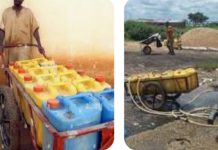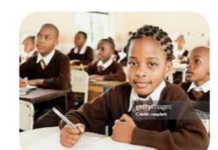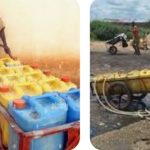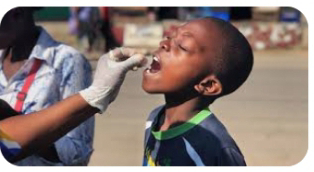
From Maiharaji Altine
When we talk about ‘zero dose immunization’, we are referring to children who did not receive a single dose of antigens they should have taken at their age to give them protection from vaccine-preventable diseases.
The United Nation Children’s Fund (UNICEF) has declared that, Nigeria has 2.2 million children out of 48 million children around the globe who did not receive a single regular dose in their lives.
The UNICEF has also declared that, 186,452 children in Sokoto, Zamfara and Kebbi States did not receive a single dose of any vaccine in the Routine National Immunisation Schedule as at December 2022. These are the children we referred to as, ‘zero-dose children’.
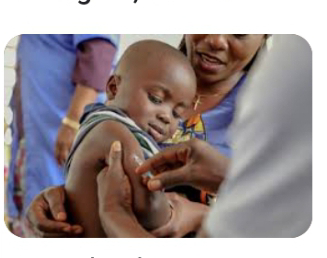
During a two-day Media Dialogue on Routine Immunization and the Zero-Dose Campaign organized by UNICEF in collaboration with the Primary Healthcare Development Agencies of Kebbi, Sokoto and Zamfara States, a UNICEF field Officer Dr. Danjuma Nehemiah stated that immunization was a key priority of the UNICEF for the next five years.
He stated that, “In spite of decades of progress to increase access to immunization in lower-income countries, at least 12.4 million children still go without basic routine vaccines every year.
“UNICEF is now focusing on reaching these zero-dose children because zero-dose children account for nearly half of all vaccine-preventable deaths.”
He, however, said that the goal is to reduce the number of zero-dose children by 25 per cent by 2025, and by 50 per cent by 2030, which would also mark the closing of the United Nations Sustainable Development Goals.
Giving a breakdown of the figures, Nehemiah said that Sokoto accounted for 122,015 zero dose children in 13 local government areas; Zamfara, with 47,085 in six areas and 17,352 zero dose children in three local government areas of kebbi state.
Nehemiah said that Kebbi State has achieved more than three-fold improvement over Sokoto and Zamfara states due to intervention that was provided some years back by the European Union, where a lot of outreaches were done in hard-to-reach communities.
However, investigation conducted by Analyzer news in Sokoto, kebbi and Zamfara states have shown that, lack of awareness campaign is one of the major reasons why some children are not being immunized and have remained in zero dose immunization level.
It was observed that many parents are not properly enlightened on the importance of vaccinating their children. Many of them have negative thinking about the immunization due to religious beliefs.
Some parents are not able to vaccinate their children due to lack of knowledge or information, lack of time or other family issues and mistrust or fear of side reactions, misinformation and rumours, vaccination fatigue (too many rounds), inability to understand the benefits of vaccination, absence of vaccine card, service delivery issues such as distance and the insecurity challenges affecting the three states.
Another reason why some people are not able to get their children immunized is the security challenges affecting many parts of Sokoto, kebbi and Zamfara states.
Many families have abandoned their villages and fled to other places for fear of the bandits attacks, as such, most of their children could not be vaccinated because they could not be located by the healthcare workers.
The health workers could not also go to some areas that are prone to bandits attacks to immunize the children, as such, those children will continue to remain at zero dose level unless something is being done to address the insecurity challenges.
A visit by Analyzer news in some parts of Gusau town, the capital of Zamfara state has shown that there were over 10,000 children roaming around without receiving any form of vaccination because their parents have been displaced by the marauding bandits.
The entire 14 local government areas of Zamfara state are facing insecurity challenges as a result of this, it is difficult or impossible for the health workers to risk their lives in an attempt to go and immunize the children.
Many attempts were made by the healthcare workers to reach out to some children in the rural areas but ended up in vein as a result of bandits attacks who are always around the areas looking for people to kidnap for ransom.
Sokoto and kebbi states are also facing similar challenges of insecurity which is affecting the immunization exercise. The situation is more pronounced in the northern part of Sokoto state, while in kebbi state, the southern part are worth hit by the insecurity challenges.
Local governments affected in Sokoto states consists of Wurno, Rabah, Sabon-birni, Goronyo and Isa, while in kebbi state, some parts of Danko-Wasagu, Sakaba and Zuru are declared as danger zones.
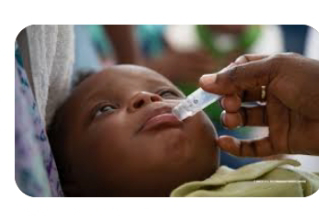
To address the non-compliance, continuous advocacy and engagements at all levels are important, as well as continuous engagement of community structures to promote the benefits of immunization.
Messages should continue to be sent to the general public to enlighten them of the benefits of immunizing their children .
There is the need to try and reach out to the communities with zero dose children, considering the fact that unprotected communities are not only potential epicenters of disease outbreaks, but they are also often deprived of other basic services and suffer from entrenched inequities.
There must be a collaborative effort across all government ministries, departments and agencies.
“By working together, we have a chance to leverage all our strengths to reach these communities with everything they need for a healthy, successful life, from nutrition and education to clean water to immunization.
Governments at all levels must provide adequate security in all the three states particularly those areas that are referred to as “red zone areas”.
Healthcare workers must be adequately protected to enable them conduct their routine immunization without any hindrance.
The concerned authorities must ensure that all the internally displaced persons that cannot be reached by the healthcare workers are returned to their respective communities so that their children will be able to receive all the vaccine doses.



